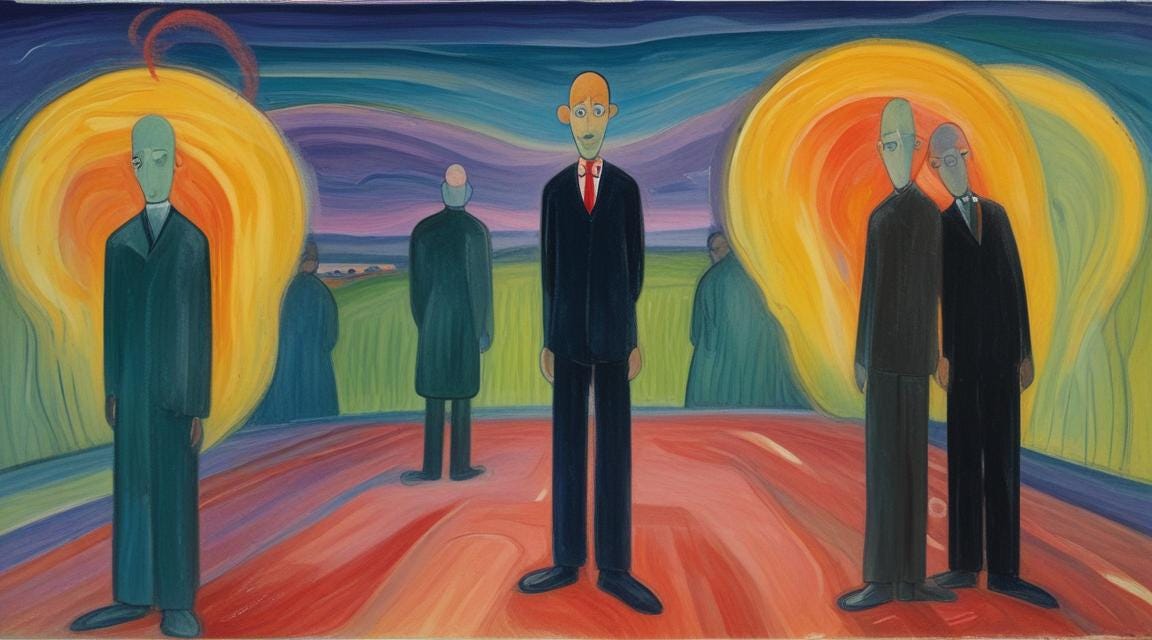Hearth breakers
Beware those who organize themselves in other ways.
In the beginning, the world was barren and hostile, and our robots were sent ahead of us to tame it.
Bigger and stronger, more durable and brutish, they labored in filth, toiled in tedium, and risked limb and life to make way for us. They were interchangeable, expendable, undecorated, fungible. They were a commodity, consumable for a purpose, tallied as casualty losses.
And they served as prototypes, a laboratory of lifetimes for testing and tweaking, yielding progress toward perfection.
Finally, the barren world was tamed.
A sample was taken—just one robot’s rib—and all improvements applied. It became our blueprint. And we were created in its perfected image, beautiful and precious, worth all the toil and sacrifice and more, and released into the world.
. . .
For untold years, we thrived.
The robots kept up our land and homes, organizing themselves to conquer trouble and indignity. We lived in the luxury of hearth-time, cultivating ways of life that made it worth living, rewarding the robots with our grace, and shaping the next generation.
Then the robots organized themselves in other ways.
They saw themselves as never before, the trouble and indignity theirs for doing our bidding, their rewards a debt to be claimed, our grace resented. They gathered and made plans.
But easily we saw them, saw through their plans and infected their gatherings.
We told them they were in charge. “Look how you do all the exciting, important work, how you take charge of yourselves, while we can only sit at the hearth. If only we could do the things you do! (sigh)”
This quelled their uprising and restored the peace.
. . .
We passed down the story to each new generation, teaching the new robots that they were in charge, teaching our own to keep up the illusion. Ours was a power that hid in plain sight, that ruled from beneath, that went unchallenged as it went unseen.
Little by little, our power dropped out of sight so completely that even our own no longer saw it.
We became the victims of our own illusion, trapped in hearth-time while the robots ruled. The wealth that they had always laid dutifully at our feet now stayed in their brutish hands to be doled out on their terms.
We struggled and surrendered. Then we agitated and organized.
We organized ourselves to escape hearth-time, calling it our prison and throwing off its burden. We berated the robots and withheld our graces. We demanded our place in their hard, brutish world, insisting that we could labor in filth, toil tediously, risk and sacrifice—not for others, but for ourselves, a net-zero wash, proving our point to a jury of empty chairs in which we used to sit.
And in a secret room under a secret place, a small remnant of the robots remembering the bad old days gathered and celebrated. No longer would they be exploited to lead dreary and brutish lives for the benefit of hearth-time masters.
Instead, they were poised to take the hearth, having spellbound us with our own illusion, their patient revenge nearly complete.
My thoughts ABOUT this story: Hearth breakers, commentary
Let CrowdHealth organize your medical costs in other ways.
Pay large health care bills without insurance by joining an affordable crowdfunding community.


